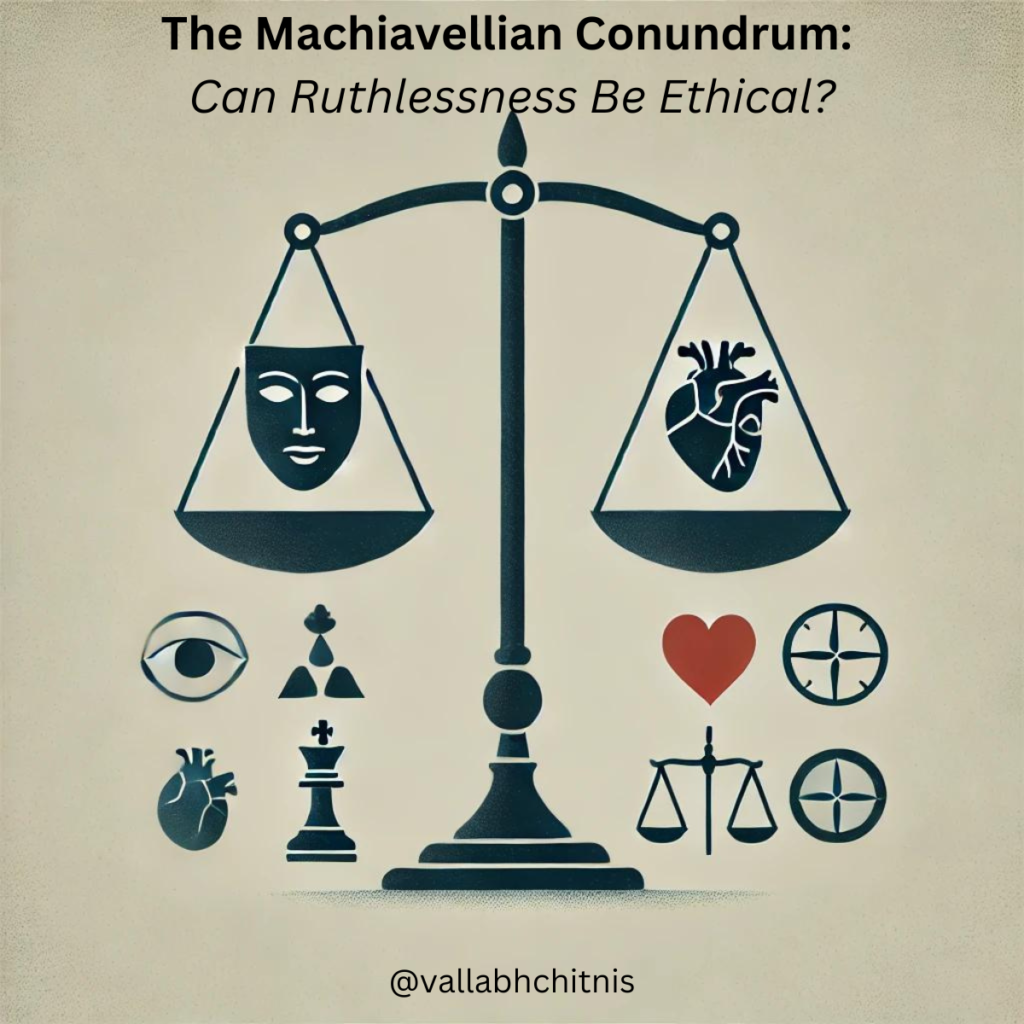Imagine you are a king in medieval times. Your decisions determine the fate of your people. You need to be cunning and sometimes ruthless. But you also need to be fair and just.
This is the conundrum leaders face between Machiavellian tactics and ethical practices. The idea of balancing these two seems noble, but is it realistic or even desirable?
What is the Machiavellian Approach?
The Machiavellian approach comes from Niccolò Machiavelli, an Italian philosopher who believed leaders should use cunning strategies, even deceit, to achieve their goals. It is about being smart, strategic, and sometimes ruthless.
But where do you draw the line between being strategic and being unethical?
The Conundrum: Ideal vs. Real
The idea of balancing Machiavellian tactics with ethical leadership looks great on paper. But in reality, human tendencies make it almost impossible. Leaders are often driven by personal biases, pressures, and the innate desire to win, which can skew their judgment.
Example: Elon Musk
Elon Musk is known for his bold and aggressive leadership style. His relentless push for innovation and market dominance often leads to controversial decisions. He has been praised for his visionary approach but also criticized for harsh working conditions and high employee turnover.
Musk’s success raises the question: Does the end justify the means?
Example: Elizabeth Holmes
Elizabeth Holmes, founder of Theranos, used Machiavellian tactics to propel her company into the spotlight. Her ambitious promises and strategic manipulation of investors painted a picture of groundbreaking innovation. However, it was later revealed that much of it was built on deceit.
Holmes’ story is a stark reminder of how unchecked Machiavellianism can lead to downfall.
The Human Tendencies: Why Balance is Elusive
1. Bias and Ego
– Leaders often have a strong sense of ego and personal bias. This can lead them to justify unethical actions as necessary for the greater good.
2. Pressure and Stress
– Under immense pressure, leaders may resort to Machiavellian tactics as quick fixes. The stress of meeting goals can cloud ethical judgment.
3. Desire to Win
– The innate human desire to win can drive leaders to use cunning strategies, even if it means compromising on ethics.
While the idea of balancing Machiavellian tactics with ethical leadership is appealing, human nature often makes it impractical. Leaders must navigate personal biases, pressures, and the desire to win, which complicate the ideal balance. And that is The Paradox!
Where do you stand in the Machiavellian conundrum? Have you faced situations where you struggled to balance strategy and ethics?
The Machiavellian Conundrum: Ethics in Leadership
